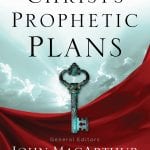Does evangelicalism need to go back in order to go forward? Many have argued to that end, offering a variety of antecedents—from the early Church Fathers to the 20th-century classical fundamentalists, and everyone in between. Greg Thornbury nominates another voice for that list in Recovering Classic Evangelicalism: Applying the Wisdom and Vision of Carl F. H. Henry. Thornbury reminds his readers that Henry anticipated and repudiated the assumptions and arguments of Karl Barth, Hans Frei, and the 20th-century Continental philosophers long before evangelical appropriation of these sources became widespread. A prudent evangelicalism will therefore reappraise Henry, not consign him to the dustbin of outdated evangelical fads.
Thornbury, professor of philosophy at Union University in Jackson, Tennessee, laments the proliferation of evangelical laments on the condition of evangelicalism. Instead, he attempts to mount a positive case for the foundation evangelicalism has built, particularly as defined in Henry’s two most influential works, The Uneasy Conscience of Modern Fundamentalism (1947) and the monumental six-volume God, Revelation, and Authority (GRA). One could make a strong case that it’s impossible to understand 21st-century evangelicalism without understanding Henry. Thornbury goes one step further. He contends it will be impossible to reinvigorate 21st-century evangelicalism without rediscovering and embracing Henry’s unique contributions.
Does Thornbury Get Henry Right?
Three of Recovering Classic Evangelicalism’s six chapters are essentially a paraphrase of and apologetic for the significance of volumes two and four of GRA, offering a foundation for evangelical commitments to epistemology, theology, and inerrancy. A fourth chapter applies similar methods to The Uneasy Conscience. Thornbury is a vivid and clear writer. He consistently and deftly distills chunks of Henry’s cumbersome prose into comparatively simple propositions that makes Henry himself more comprehensible.
More importantly, so far as I understand Henry, Thornbury faithfully represents him. I sensed in the latter the authentic voice and yearning of the former.
Is the Central Thesis True?
Would evangelicalism really have claimed more ground during recent decades if more of its brightest minds had devoted themselves to epistemology and Henry’s other theological concerns? I’m not so sure it would have, at least not to the degree Thornbury implies. I find a tension in Henry, replicated in Thornbury, that I cannot quite resolve. Henry does affirm the decisive role of the Holy Spirit. Offering documentation, Thornbury appropriately counters those who have doubted (133). But at the same time, Henry and Thornbury articulate an ambition for intellectual engagement that appears incompatible with what Scripture permits us to expect from darkened human minds. According to Thornbury, Henry wanted but never had “an urbane evangelicalism bristling with ideas coming from the best minds and faithful institutions carrying them forward into a reluctant, but hopefully winnable, society” (206). The post-World War II neo-evangelicals “envisioned a body of thought consistent with historic Christian orthodoxy that would appeal to the intellectual class of the day and spawn new work across the disciplines of human inquiry in the arts, psychology, science, and politics” (22).

Recovering Classic Evangelicalism: Applying the Wisdom and Vision of Carl F. H. Henry
Gregory Alan Thornbury
Recovering Classic Evangelicalism: Applying the Wisdom and Vision of Carl F. H. Henry
Gregory Alan Thornbury
Paired with those ambitions for minds and institutions was Henry’s vision for a socially engaged evangelicalism:
In the end, here is Henry’s deepest conviction: when the current evangelical community begins to “out-live” its environment as the first-century church outreached its pagan neighbors, the modern mind will stop casting about for other solutions. (176)
And later:
Nothing could restore the fortunes of historic Christianity more in postmodern times than a unified thesis of public reasons for traditional morality complemented by an authentic recognition that there is an existential dimension for why people disagree with our views on marriage, abortion, and other related life issues. (192)
I believe those expectations are too optimistic. This doesn’t mean evangelicals should stop defending their faith through intellectual engagement or applying it through social action. But we must not load these pursuits with theologically unjustifiable expectations.
Strategic Investment
Nestled within this problem is another. Regarding contemporary evangelicalism, Thornbury writes, “What seems to be missing, however, is a substantive milieu—an epistemological backdrop against which the drama of redemption and the work of the church are played out” (39). Later he writes, “Evangelicals have no consistent program to speak to the sociopolitical climate of our time” (164). Thornbury’s comments reflect Henry’s strategic investment in broad ecumenical institutions and alliances. But these came with a cost. Thornbury himself concedes Henry’s minimal interest in ecclesiology (23, 35). The outcome is that Henry quantitatively underemphasizes the church—and functionally marginalizes it.
What if the church actually were that milieu Henry wanted evangelicalism to be? What if the body of Christ were the program that would put hands and feet to the mind of Christ? What if Henry’s career had invested more in cultivating orthodox, evangelical churches that love their neighbors rather than in events and institutions even he acknowledged had failed their purpose (203)? Henry called the church “God’s kingdom in miniature” (151); however, it often seems his vision for evangelicalism—and I realize this is a gross oversimplification—was too much research-university-plus-Peace-Corps, and too little embassy.
Core Mission
By no means do I intend to imply Henry wasted his life. Clearly, the matters he addressed needed attention during the zenith of his career. Henry was intellectually gifted to engage them, perhaps like no one else of his era. Indeed, the best of evangelicalism stood on Henry’s shoulders, beginning to flesh out the implications of his burdens. Thornbury is concerned those who agree with Henry’s epistemology don’t engage the issue, interested instead in “defining the gospel, defending a view of justification affirmed by the Protestant Reformers, thinking carefully about the practicalities of church order and structure, surveying missional strategies, and critiquing extant cultural mores” (37). I’m concerned evangelicalism has been too slow to do those very things because it was distracted from the core of its mission.
If evangelicalism is better off today because of Henry, it’s not because it adopted uncritically his set of priorities, but because it complemented matters he neglected. Evangelicalism is best served when books, ideas, thinkers, and institutions are servants of the church, not objects of hope.

































